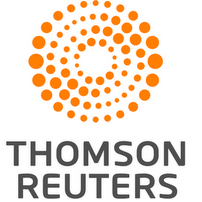News
Thomson Reuters reshapes for post-pandemic world
Tuesday 23 February 2021

Thomson Reuters reported higher sales and operating profits and said it would reshape its corporate structure for a post-pandemic world, closing offices, streamlining technology and relying more on artificial intelligence and machines.
It will invest $500 million to $600 million over two years to make the transition from a content provider to a content-driven technology company to serve customers increasingly working from home during the COVID-19 pandemic.
It aims to cut annual operating expenses by $600 million through eliminating duplicate functions and consolidating technology, as well as through attrition and shrinking its real estate footprint. The cost cuts do not involve layoff programmes and divestitures, the company said.
“We look at the changing behaviours as a result of COVID ... on professionals working from home working remotely being much more reliant on 24-7, digital always-on, sort of real-time always available information, served through software and powered by AI and ML (machine learning),” chief executive Steve Hasker said in an interview with Reuters.
Sales growth is forecast to accelerate in each of the next three years compared with 1.3 per cent reported sales growth for 2020, the company said in its earnings release.
Revenues rose two per cent to $1.62 billion, while operating profit jumped more than 300 per cent to $956 million, reflecting the sale of an investment and other items.
The three main divisions, legal professionals, tax & accounting professionals and corporates, all showed higher organic quarterly sales and adjusted profit.
The Reuters News business showed lower revenue in the fourth quarter. In January, Stephen Adler, editor-in-chief for the past decade, said he would retire in April.
Thomson Reuters said its stake in The London Stock Exchange is now worth about $11.2 billion.
The LSE last month completed its $27-billion takeover of Refinitiv, 45 per cent owned by Thomson Reuters. ■
- SOURCE
- Reuters
- « Previous
- Next »
- 254 of 2178